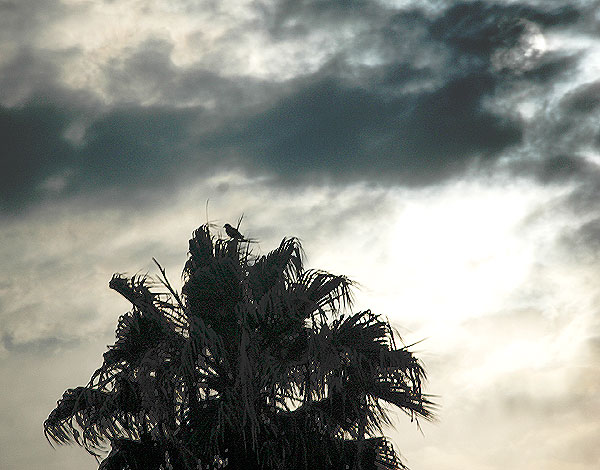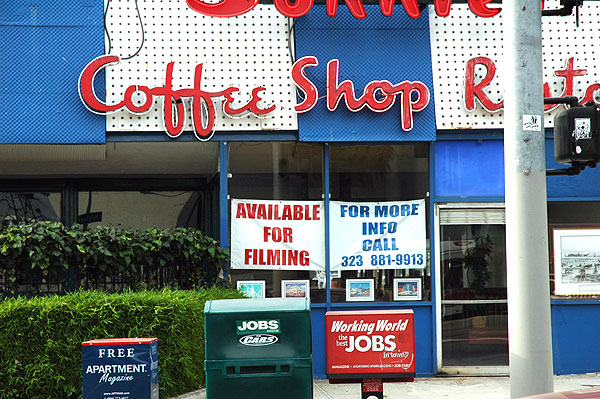
|

|
The tourist sites say the only month to avoid Los Angeles is June. The ocean temperatures mix with the
air temperatures to create a layer of fog that basically lasts all day, every day, the entire month. This is known here as
"June Gloom." It's gone be the time July rolls around.
D.J. Waldie, the author of "Where We Are Now: Notes from Los Angeles," explains in the Los Angeles Times here -
Spring and early summer in Los Angeles, according
to the National Oceanic and Atmospheric Administration, deliver an average of just 11 clear days in May and 14 in June. The
definitions of "clear" and "cloudy" are subjective, but on even the partly cloudy days, the daylight hours are at least half
obscured.
Just how gray depends on where you live. At LAX, June usually yields no more than nine perfectly clear days.
In coastal cities from Malibu to Seal Beach,
the gloom can linger all day, putting off the start of their summer until after the Fourth of July.
The gray season
is made in the Pacific Ocean. Cold currents rise close to shore; a persistent high-pressure
zone farther out channels warmer air eastward, and the springtime vortex called the Catalina Eddy fabricates fog from the
interaction of cool water and warm air, pushing it on shore when the air of inland valleys rises in the heat of midday. Television
weathercasters call the visible result "the marine layer," although what they're really taking about is fog.
It ambles
over the beaches after midnight, flows in wide streams up the former bed of the Los
Angeles River through the western half of the city and
takes general possession of the basin under the same inversion layer that brews smog. On good days, the sun eventually burns
down through half a mile of gray clouds and illuminates, at last, a city that seems to have been forgotten by sunlight and
color.
It could be worse. Tourists before the mid-20th century often complained that a dull haze shrouded the charms
of what had been advertised as a perpetually sunlit Mediterranean city. William Faulkner called the lighting effect a "treacherous
unbrightness."
The JPL-NASA folks say this -
While the Catalina Eddy, an atmospheric vortex or eddy with a counter-clockwise rotation pattern, can occur in the
California Bight (the open ocean bay formed by the bend in the coast between Point Conception to the north and San Diego to
the south) at any time of the year, it is most often seen during May and June. It can develop when the winds from the northwest
along the Southern California coast are stronger than normal and interact with the local
coastal and land topography, turning inland and creating a vortex.
Only about 200 kilometers (120 miles) in diameter,
the Catalina Eddy has not been well measured by scientists. The eddy is actually too small to appear in current weather forecast
models and is sometimes too shallow to have a strong influence on the cloud structure viewed by weather satellites.
Tuesday,
June 6, 2006, Catalina Eddy, wasn't being nice to Hollywood
- the sun never burned through all the "treacherous unbrightness." Here, on Laurel
Avenue, at the base of Laurel Canyon, a raven in a palm at the end of the day.
By the way, when William Faulkner
was out here to work on the screenplay for The Big Sleep, based on the Raymond Chandler novel, he didn't much like it here. He cut out early and worked from home, in Mississippi. But the scene at the gambling joint at the top of Laurel Canyon, on a foggy night, makes noir
sense. It must have been June. And Catalina Eddy sounds like a character in one of those Raymond Chandler novels.

But the diffused light
makes for nice light for taking pictures - Johnny's Coffee Shop, Fairfax at Wilshire, closed, but kept up for location shooting,
when you need classic Google Architecture, as they call it.

|

|

|

